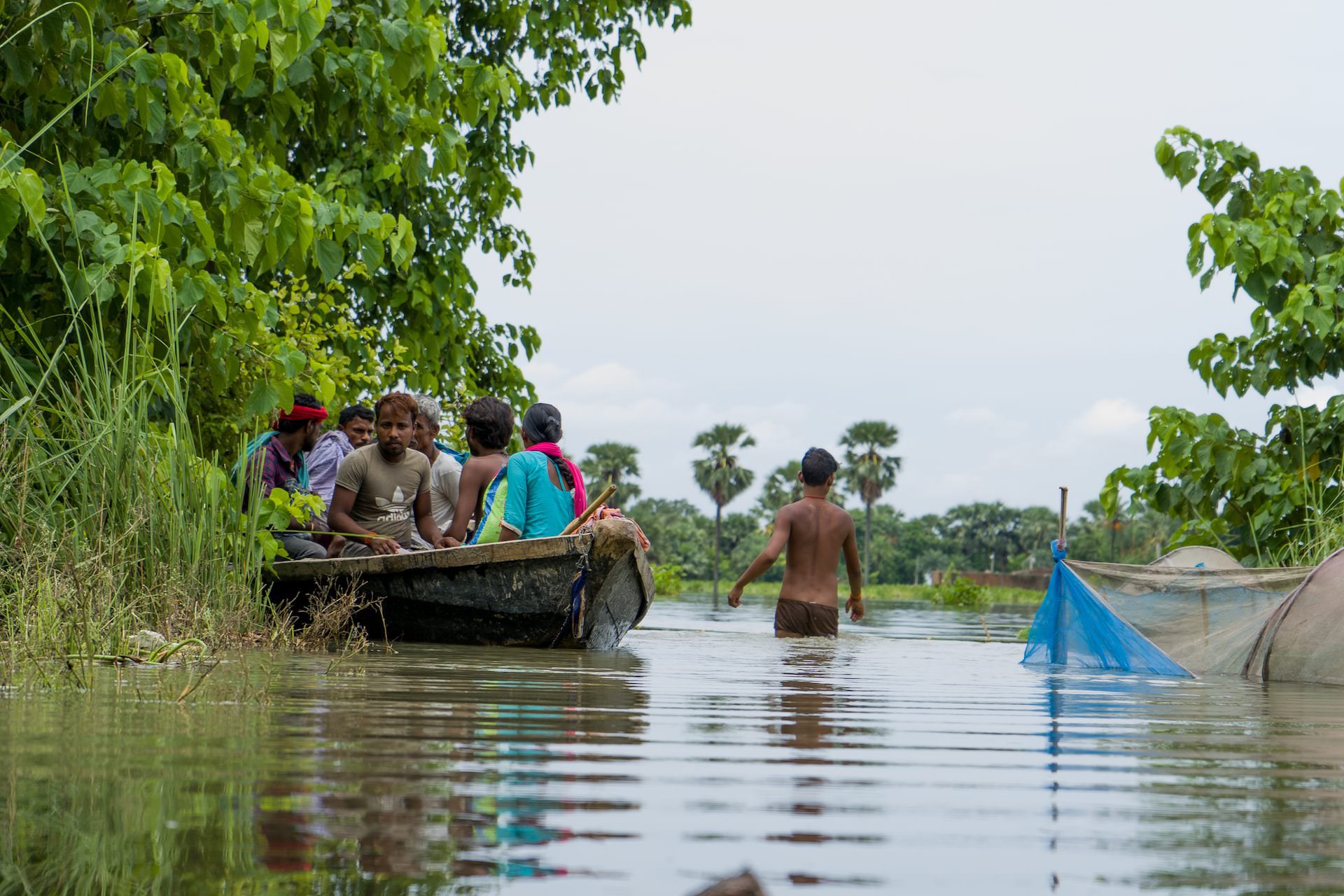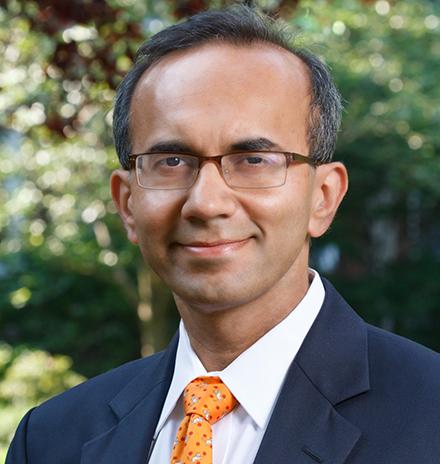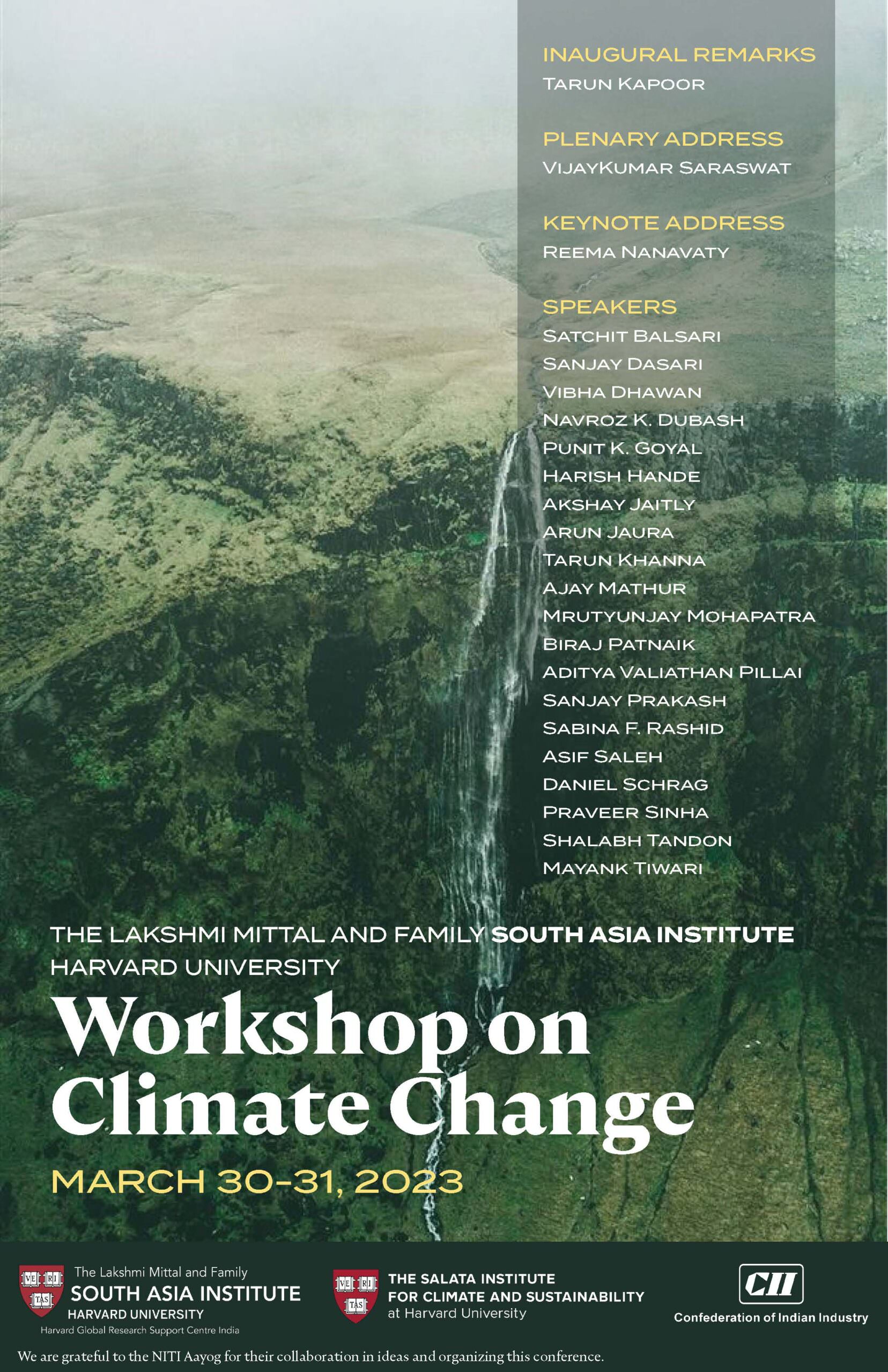
Atul Pandey
The Mittal Institute has embarked on a major climate change initiative focused on South Asia, hosted at our Harvard Global Research Support Center India, an affiliate of Harvard University. This focus comes as Harvard awarded the Mittal Institute two multi-year grants to catalyze climate change research in South Asia. To build on the initiative, the Mittal Institute will host an inaugural climate change workshop on March 30-31 in New Delhi. The sessions will convene an interdisciplinary group of experts, policymakers and academics to set collective research and strategic priorities. LMSAI Director Tarun Khanna, Jorge Paulo Lemann Professor at Harvard Business School, spoke with us about LMSAI’s climate focus, and previewed the upcoming workshop.
Mittal Institute: The Mittal Institute has begun a deep focused on climate change in South Asia, earning two multi-year grants from Harvard for further collaboration and research. Can you talk about the evolution of this interest at the Mittal Institute? Why is it such a critical focus?
Tarun Khanna: Climate change has become an essential issue for everybody, but particularly so for six of the eight billion people who live in less-advantaged settings. And we’ve seen South Asia become sort of “ground zero” for a lot of these issues. You saw the floods that swept through Pakistan a few months ago, and last year the scorching heat waves that impacted India. These events have raised consciousness among policy makers, academics, and among society in South Asia to be more cognizant of climate change’s effects. And with our strong local presence in the New Delhi office, we are experiencing this dramatic rise in attention. So that’s one piece of it.

LMSAI Director Tarun Khanna.
The second piece is that in this last COP 27 meeting, there was a symbolic, if not adequately substantive, breakthrough with something called the “loss and damage fund.” This is the first time that the developed world has, in effect, agreed that it will compensate developing countries for the damage to the environment that has mostly been done by the developed world. So I think there was again an attention-grabbing event that happened. At the Mittal Institute, we are a platform between South Asia and Harvard, so that impacted the South Asia end of things. On the Harvard side, the creation of the Salata Institute as a convening structure has created an impetus for more longer-term projects on climate change research.
Mittal Institute: The Mittal Institute’s Climate Change Workshop on March 30-31 will be LMSAI’s first in-region, multi-day collaboration on climate change research. You have gathered a wide array of climate change experts, representing academia, NGOs, corporations, think tanks, and more. What were your motivations in building the panels?
Tarun Khanna: This is straight out of the Mittal Institute playbook, in the sense that LMSAI has become very good at bringing together people who are otherwise less likely to engage with each other. We’ve been doing that with the Reimagining India’s Health System: A Lancet Citizens’ Commission for the last few years. We’ve done that in the past with the Talent and Meritocracy in India and China Project and with the 1947 Partition of British India Project, as well.
This is just the latest in a long line of multi faculty interdisciplinary projects that tackle big issues. We are bringing together academics—since we are a research institute—but also policy makers, activists, the government, the private sector, etc. It’s quite unusual to have everybody under the same roof, learning from each other and communicating with each other.
We are bringing together academics—since we are a research institute—but also policy makers, activists, the government, private sector, etc. It’s quite unusual to have everybody under the same roof, learning from each other and communicating with each other.
Something else unique about this workshop is that we are partnering with two NGOs, the Self Employed Women’s Association (SEWA) in India and BRAC in Bangladesh, who both have very long and storied histories with multiple decades of history. Satchit Balsari, who is co-leading this initiative, has worked with SEWA for a very long time, and I’ve worked with BRAC for 15 years or so on various projects. These NGOs in-region are experiencing the effects of climate change. In fact, the SEWA team is doing research on response to heat stress. With the recent heat waves, this is crucial field work, and enables data collection of a very novel sort that we wouldn’t be able to get sitting comfortably in our offices in Cambridge.
Mittal Institute: Can you share more about the research that the two Harvard grants will enable?
Tarun Khanna: We have an immediate project focus on these two grants, which are quite different. The Climate Change Solutions Fund grant is focused on an open data repository that will facilitate research. The other Climate Research Clusters grant from the Salata Institute is to study migration as a form of adaptation to climate distress. That includes floods or extreme heat, where people are forced to move. Or with extreme heat, some people are simply unable to move because they lack the means to do so—and then they suffer more. So we are looking at both involuntary migration and then the inability to migrate. We are confident this work will catalyze understanding, and, of course, further research.
Read more about the Mittal Institute’s Climate Adaptation in South Asia: Cluster Research.

